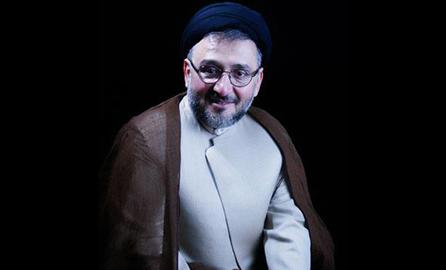
Mohammad-Ali Abtahi, who served as a vice president under reformist president Mohammad Khatami, was one of the first high profile figures in Iran to congratulate Iranian leaders on the Vienna nuclear accord.
Alongside a photograph of Ayatollah Khamenei on his Instagram page, Abtahi wrote, “The victory of the nuclear agreement must be inscribed with the names of Ayatollah Khamenei as the guide and Zarif as its intelligent implementer. Let us for once consider this victory a victory for all Iranians and refrain from turning it into a factional matter. Let us consider it an occasion for national celebration and show our maturity to the world. Would that be possible?”
IranWire talked to Abtahi about the agreement and the events surrounding it.
What do you think about the agreement?
I am very happy with it. There was a national need for this agreement because the whole country was entangled in this absurd situation. Iran had no intention of building a nuclear weapon, but, due to misunderstandings and mistrust, it was subjected to sanctions and numerous economic problems resulted. The fact that somebody has succeeded in convincing the other side to let go of its misunderstandings is a great opening in the economic and social life of the people.
This knot was not undone with force, but calmly, through diplomacy. The most beautiful thing was the message that it sent to the whole world, and especially to the Middle East, which is beset by crises. The message is that knots can be untied and that war is not a good solution for any crisis. Mr. Bush tackled crises through war and did incredible damage to both the US and other countries. This agreement showed that diplomacy can replace war. It is an example for solving crises in the world — and in the region.
Many people have given Iranian Foreign Minister Mohammad Javad Zarif the credit for the deal going through. But others say he was given this power, and that he should not really be credited with the success of the historic agreement.
As far as I know the powers given to Mr. Zarif were the same as those the previous negotiating team had. But the world did not believe in what they [the previous negotiating team] were saying. At the same time, many people in Iran did not believe that diplomacy is an expert skill, requiring knowhow.
Mr. Zarif did a few significant things in these talks. He worked as an expert, meaning that he knew how to behave when it came to diplomacy, and how to negotiate. And he knew exactly what strings to pull to get the best concessions for his country without breaking the string. As Mr. Kerry pointed out, Mr. Zarif is a real patriot. Rarely does somebody possess all the necessary characteristics for this — he knows his job, is patriotic, observes the [the Iranian security establishment’s] red lines, and guards our national pride. I do believe that Mr. Zarif is one of the most intelligent diplomats in the world. Undoubtedly, the presence of somebody like him was a major reason for this success. It is not like you can give these powers to just anybody, who would then come back with such a great success. Iranian history will be greatly in debt to Mr. Zarif.
Hardliners in Iran and the US Congress are against the agreement. Will this opposition make any difference?
Considering the new circumstances, which led to a level of national unity, there will be criticisms here and there from the hardliners. I don’t think this is necessarily a bad thing. But they can’t create serious obstacles, especially Iranian hardliners, who would not put up such a fight if they came to really know the views of the Leadership [Ayatollah Khamenei] and understand them. The Leadership has played a significant role, because if Khamenei had opposed anything at any phase of the negotiations, the negotiators would have stopped, and nobody in the world would have wanted to negotiate with the Iranians. So we should not worry about Iranian hardliners. Regarding the U.S. Congress, Mr. Obama has announced that he will use his veto power if necessary.
What direction will the Iranian nuclear program take after this?
The important thing was to agree with the world on one point: Iran does not want to build a nuclear bomb. Now that we have reached this point, the Iranian nuclear industry will be like the nuclear industry in any other country, i.e., peaceful. I predict that the Iranian nuclear industry will continue on this path, and that there will be no negative international reaction.
Iran can satisfy its needs and convince the world that it is not and has not been after nuclear weapons. The world has not been worried about the employment of nuclear energy. It was worried about nuclear weapons because of a misunderstanding. In these negotiations, Iran succeeded in convincing the world that it has no intention of using its nuclear industry to build nuclear weapons. I believe that from this point forward, Iran will be able to benefit from its nuclear industry as it can benefit from any other industry.
Related Articles:
Cooperation, Rather than Confrontation, to Solve our Differences
"No miracles, but signs of real hope"
To read more stories like this, sign up to our weekly email.
visit the accountability section
In this section of Iran Wire, you can contact the officials and launch your campaign for various problems

























comments